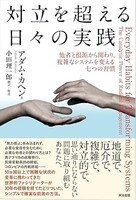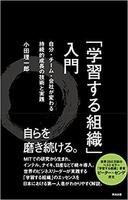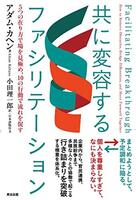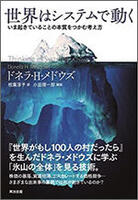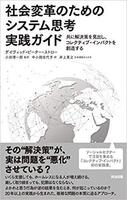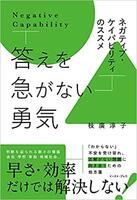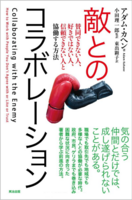イベント&セミナー
**This course has been closed**Systems Thinking Special Seminar: Resilience and Transformation in Socio-Ecological Systems
This course has been closed
このセミナーの日本語ページ案内はこちらです。
The Japanese page of this seminar is at the following URL:
https://www.change-agent.jp/events/001500.html
Modern systems thinking developed from the integration of engineering studies, such as electrical engineering and thermodynamics, and biological studies, including biology and ecology. Its applications range from the design and development of products and infrastructure composed of complex parts and processes to the human mind, human relationships, and the workings of organizations, societies, and economies.
Whether in industrial activities or in the workings of life forms and groups, there are a number of common systems principles: system properties and time developments that arise not only from elements but also from connections and linkages among elements, such as feedback, delay, stock and flow, and nonlinearity. However, we tend to be biased toward the engineering side because of a mechanistic worldview even when dealing with people, groups, and nature. In order to understand "complex systems," we need to take a more living systems view of the world. Our society may be a messy and difficult one in a sense, but if we deepen our understanding, we can see that it is formed by relatively simple rules, it is even beautiful and mysterious, and it can adapt and evolve to changes in the environment.
Socio-ecological systems (SES) are complex systems in which human societies and ecosystems are interrelated. Some systems have provided benefits for thousands of years, such as rice cultivation in Japan and Asia, while others have not been able to sustain their benefits due to overgrazing, intensifications, and overfishing including the herring fishery in Hokkaido. The performance and sustainability of socio-ecological systems vary widely.
Complex living systems such as human societies and ecosystems can surprisingly change in ways that cannot be predicted by social conventions of time, and can play havoc with human societies. While some communities collapse in response to such challenges and environmental changes, others adapt to them.
What mechanisms or structures cause these differences in behavioral patterns? How can we transform the system to move toward a desirable trajectory when it is on an undesirable trajectory, and how can we come together to address challenges in order to bring about such transformation?
As a foundation for thinking about and finding answers to these questions, this webinar series will discuss change in social and ecological systems, especially change that occurs suddenly and has surprising and unpredictable impacts. In addition, concepts and tools for systems thinking such as resilience, panarchy, and transformation will be discussed.
The webinar lectures will be conducted by Dr. Jan Sendzimir, a wetland ecologist who has worked in some of the world's leading research institutes and studied socio-ecological systems. Our company has learned a great deal from Jan on systems resilience, as well as his action research findings. Jan is also a Zen practitioner and a systems thinker with a familiarity with Eastern thought. This webinar is provided free of charge, courtesy of Jan.
At Change Agent, we feel it is important for Japanese learners to become proficient in English as a common language so that they can have more opportunities to learn from systems thinkers from around the world and extend Japanese contributions to the world. Dr. Jan Sendzimir's lecture will be presented in English with no Japanese interpretation. (However, materials will be provided in Japanese and English, and consecutive interpretation will be provided for Q&A sessions.)
Please see below for details and registration.
Date and Place
1st Session: Saturday, September 17, 2022, 19:00 - 20:15
Session 2: Saturday, October 1, 2022 19:00 - 20:15
Both sessions will be held on Zoom
Program Outline
FIRST MEETING: RESILIENCE AND UNCERTAINTY AMIDST GLOBAL CHANGE
Introduction - Uncertainty in systems increases when change is sudden and unpredictable, and this challenge emerged forcefully and clearly with ecological catastrophes 70 years ago (Examples: Canadian forests, Agriculture, etc.). This challenge increases dramatically with climate change, and we may witness much larger increases in the future (examples: Fire, Flood, etc.).
This session introduces the concept of Resilience using examples from natural ecosystem dynamics to illustrate how the concept explains non-linear, surprising change. It also introduces the concept of Panarchy to describe how systems are structured into a hierarchy of levels, wherein processes operate within each level and, sometimes, between levels in ways that resist and absorb or accentuate impacts.
- Resilience of Aquatic Ecosystems
- Case Study - Shallow Lakes
- Resilience of Terrestrial Ecosystem
- Case Study - Fire in Mountain Forests
- Resilience Theory
- Structure of Complex Adaptive Systems
• SECOND MEETING: MANAGING UNCERTAINTY TOWARDS TRANSFORMATION
This second session extends the concepts of resilience and panarchy to examine how they illuminate the causes of change in socio-ecological systems (SES), with particular emphasis on how this applies to system transformation from a management perspective.
- Resilience & Panarchy of Complex Adaptive Ecosystems
- Case Study - Shallow Lakes
- Case Study - River Valleys
- Strategies for Managing Resilience of Socio-Ecological Systems
Each session will begin with an introduction, followed by a 45-minute presentation and a 20-minute Q&A and discussion.
The webinar will be conducted in English with no interpretation or subtitles in Japanese, but materials will be distributed in English and Japanese.
However, consecutive interpretation will be provided for questions in Japanese during the Q&A session.
Profile of Lecturer
Dr. Jan Sendzimir
Research Scholar, Institute of Hydrobio & Aquatic Ecosystem Management, University of Natural Resources & Applied Life Science (BOKU)
Research Scholar, International Institute for Applied Systems Analysis (IIASA)
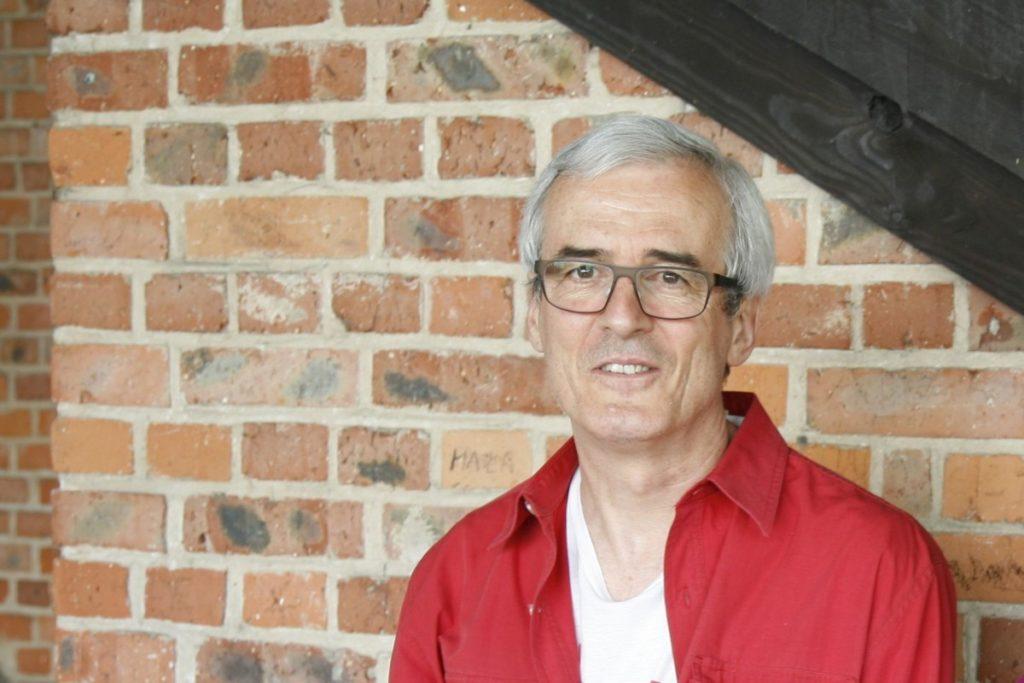
Dr. Sendzimir studied systems ecology as part of the environmental engineering program at the University of Florida, Gainesville, USA, under H.T. Odum (master's degree in 1984) and C.S. ("Buzz") Holling (PhD in 1998).
In the interim he worked as a wetlands ecologist in the design and integration of natural and artificial wetlands into waste treatment systems. In addition to field research on the dynamics of lake, river and forest ecosystems, Dr. Sendzimir collaborates with academia, NGOs and governments on research applied to problems with complex combinations of ecological, economic and sociopolitical factors that occur over relatively large areas such as river basins, major watersheds and mountain chains. A major research area focuses on how ecological, social and economic interactions influence our capacity to adapt to and/or mitigate change at different scales and how that affects the robustness and resilience of social-ecological systems to change. He uses conceptual and formal modeling as social simulation exercises (role-playing games) to integrate perspectives from different disciplines and sectors of society in decision-making frameworks such as the adaptive management process.
Organizers
Organized by Change Agent Inc.
Co-organized by es inc.
Participation Fee
Free of charge
(Please note that since we would be re-transmitting the webinar recording for viewers, you may be seen participating in the webinar in the video. Please also note that there will be no interpreter except for the Q&A session.)
Registration
Please fill out the form below to sign up.
If you do not receive a reply within a week after your registration, please let us know.
Please note that we are accepting applications for both days, but if you are unable to attend on one of the dates, we will send you a video at a later date.
Inquiry
Change Agent, Inc.
attn: Kodama, Oda
seminar@change-agent.jp / 03-5846-9660
If you do not receive our reply after one week, please let us know, as there may be a problem with e-mail systems.
公開:2022年8月30日



